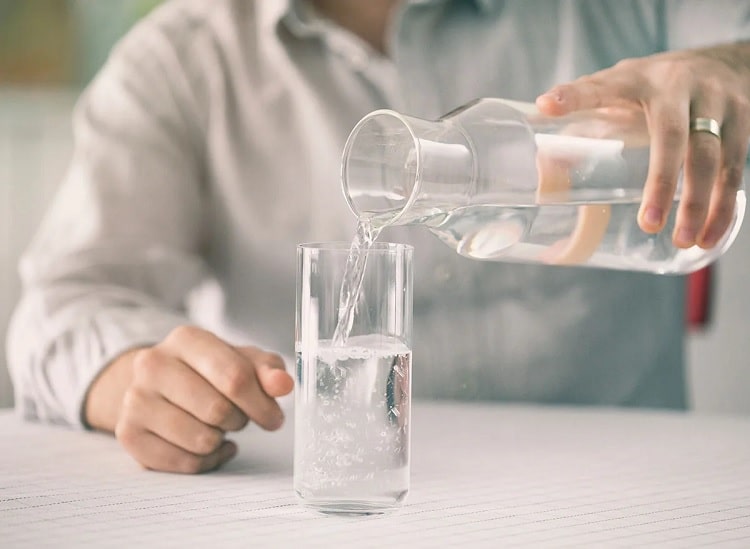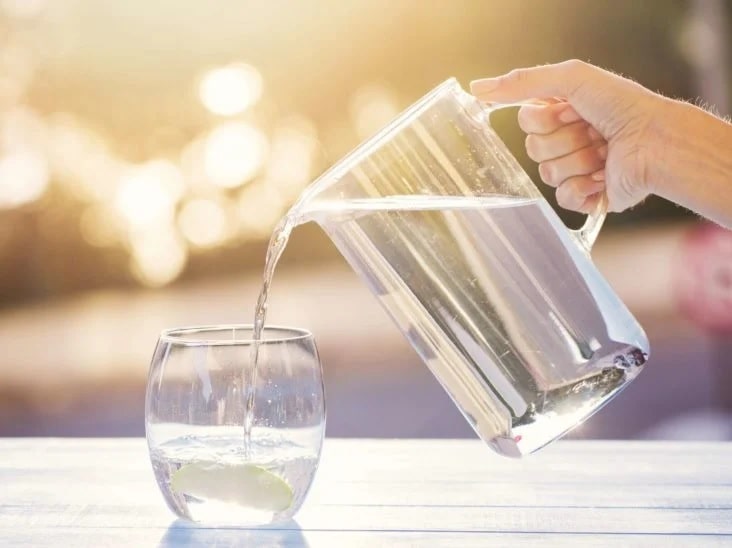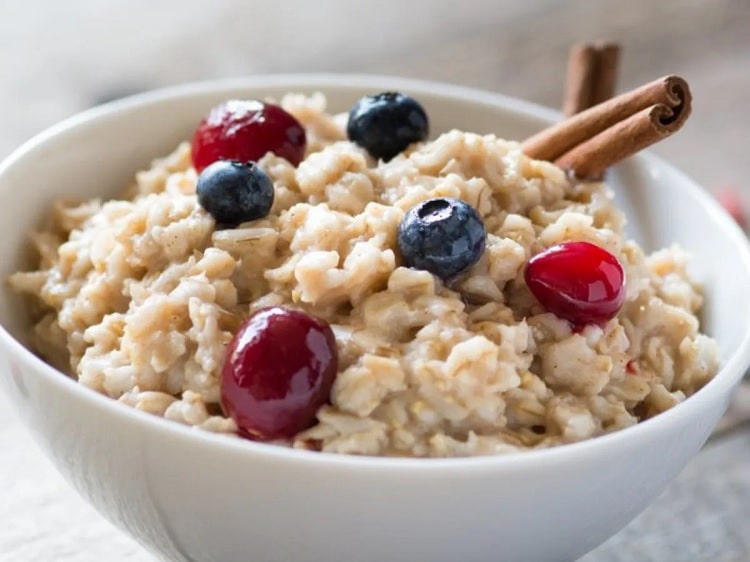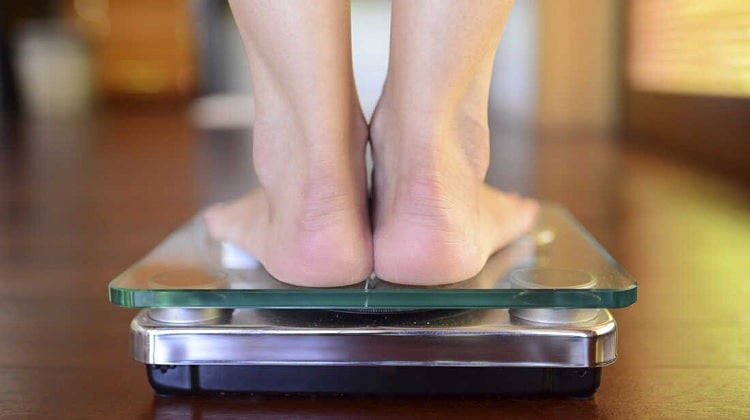Does Water Make You Gain Weight? According to Dietitians
Each and every weight loss program recommends you stay hydrated. Water is a fundamental component in your bodily functions. There are numerous studies about the effects of water on weight loss. People who want to lose weight drink more quantities of water a day.
Water is found to burn calories, suppress appetite, and detoxify your body. Despite these benefits, there is a growing concern over the impact of water on weight gain.
Drinking too much water is said to alter your weight and can cause weight gain in some people. It may be hard to digest this piece of information. This article helps you gain clarity over whether drinking more water can make you fat and suggests ways to help you get rid of the weight gained by drinking water.

Can Drinking Water Cause Weight Gain?
Since water is essential for your metabolic process, the likelihood of losing weight through water is high. Water also has properties like suppressing appetite, burning fat and calories, and boosting your exercise. But why do some people get fat after drinking more water?
You might be one among the people who have gained weight after drinking water and wondering about what went wrong. The presence of contaminants in the water you drink may cause this impact on weight gain after drinking water. Due to these pollutants, your hormonal functions can get affected, leading to an increase in body fat cells.
Besides that, people with certain health conditions can experience weight gain by drinking more water. Even though water constitutes 60% of our body weight and it is vital for maintaining our overall health, drinking excess water can cause weight gain in people with kidney disease and heart disease.
Drinking water can also lead to water retention or water weight, which is fluid accumulation in the body. Water weight commonly occurs when you drink too much water at a time. Your kidney finds it unable to get rid of the excess water, which disrupts electrolyte balance and stores water as weight in parts of your body.
Water retention, or edema, can be defined as swelling in parts of your body like tissues, cavities, and so on, where excess water accumulates. Due to water retention, your weight can oscillate by nearly two to four pounds in a day. This is a more common occurrence in bodybuilders or athletes. If you’re someone worrying like “I’ve been drinking water and still gaining weight,” one of the aforementioned reasons can be behind your weight gain.
What Is Water Weight?
Drinking too much water at a time can result in fluid accumulation in the body. This storage of excess water in parts of the body is known as water weight or water retention. While water weight can happen due to a variety of reasons, it causes fluctuations in your weight and causes weight gain.
How can you know if you have water retention? When you have water retention, you are likely to experience any one of the below symptoms:
- Swelling, especially in arms, feet, or legs.
- Skin tightness
- An increase in abdominal size
- Weight oscillations
Causes of Water Weight
Water weight can be caused by various factors, including physical inactivity. Being less physically active can restrict fluid circulation to various parts of your body, resulting in water retention. Consuming foods that are rich in sodium and carbohydrates can result in water retention.
Women experience water retention during their menstrual cycle due to natural hormone variations. Water retention also occurs in people with kidney or heart disease due to disruptions in blood flow, leading to swelling and excess water weight. If your diets lack essential nutrients like potassium and magnesium, you are likely to have water weight. Medications can also cause water retention in some people.
Prevention
It is best to take preventive measures to avoid experiencing water retention. There are numerous ways to purify your drinking water naturally. Consuming water through these methods can help you get rid of potential contaminants in the water and prevent water retention.
You can also adopt balanced diets, which can prevent fluids from building up. People with kidney or heart disease should avoid drinking too much water since it can worsen their condition. It is best to consult your doctor if you experience water retention as a side effect of any of your medications.
Ways to Lose Water Weight
Water weight can cause weight gain in some people. But the effects of weight gain can be temporary in a majority of cases. Here are some ways in which you can reduce water weight and manage your weight.
Manage your sodium intake
When you consume too much sodium, your body will have an imbalance in the sodium-to-water ratio. The Food and Drug Administration suggests consuming a maximum of 2,300 mg of sodium per day. Exceeding this limit increases your likelihood of having water retention.
It is best to avoid processed foods since they contain high levels of sodium. Therefore, regulating your sodium intake can help reduce your water weight.
Reduce carbohydrate consumption
Carbohydrates can get stored in your body as glycogen. This stored glycogen includes water in it. Reducing carbohydrates can aid in reducing water weight.
You can replace carbs with protein-rich and potassium-rich foods, which can cause a reduction in water weight. Cutting down on carbs can reduce water retention and prevent weight gain.
Exercise on a regular basis
Regular exercising helps you get rid of the excess water through sweating. Moreover, when you do regular workouts, your blood circulation improves, which can reduce water weight in the legs and feet. Regular workouts can cause the burning of glycogen energy stores, leading to a reduction in water weight. You can engage in any physical activity that causes sweating to reduce water weight.
Drink more water
Dehydration can be one of the reasons for water retention. Therefore, drinking more water can reduce levels of water weight. Water is also essential for the better functioning of your kidney. Hence, drinking more water can help your kidney remove excess water and sodium from your body.
Consider taking supplements
You can also consume potassium and magnesium supplements to reduce water retention effectively. Taking nutrient supplements can reduce swelling and abdominal bloating. However, it is best to seek the help of a medical professional before taking these supplements.
The Bottom Line
Drinking too much water can cause weight gain in some people. But you can reduce the effects of weight gain through certain methods. While drinking water can help you lose weight, it can cause some amount of weight gain depending on a number of factors.
You can drink water based on your activity level, weight, metabolism, and many more factors. Drinking water based on these factors helps in managing your weight.
Faqs
When excess water builds up in your body, it causes puffiness or bloating. This can result in increasing your abdomen size. In this way, drinking more water can give you a big belly. But since this is water weight, you can lose the weight in multiple ways.
There are various reasons for gaining weight from drinking water. But the more common case of weight gain from drinking water is by having water weight. Drinking excess water at a time causes the storage of excess water in your body. This water weight can cause oscillations in your weight to nearly four pounds a day.







